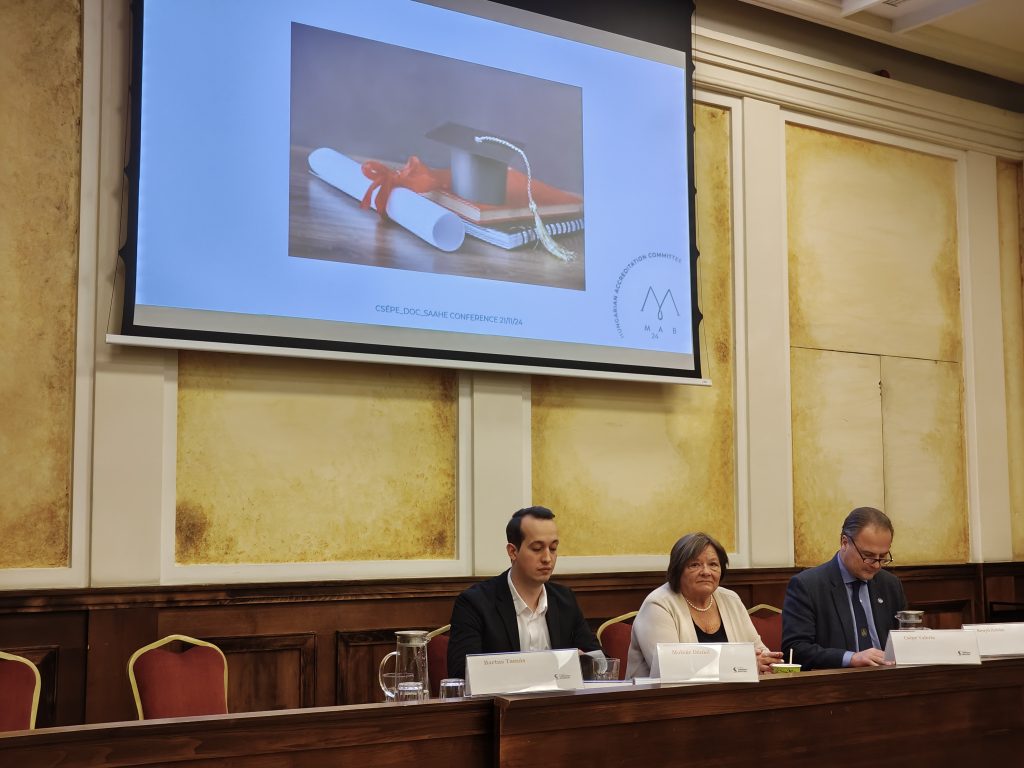Doctoral education in Hungary has come a long way in the decades since the 1993 Higher Education Act (Act LXXX), which assigned the granting of the PhD degree to universities. Based on the experiences of the past 30 years, it is time to make a review about where doctoral training is going, how the scientific results of the program participants can be evaluated in terms of their social usefulness or their international competitiveness. Among other things, these questions were discussed the Conference, called Doctoral (PhD) training before a turning point?, which was held on January 29, 2025 at Corvinus University of Budapest (CORVINUS).
After the opening speech of Tamás Bartus, vice rector responsible for the research and academic community of the CORVINUS, in the first section was moderated by József Berács (Professor Emeritus, CORVINUS).
Three presentations were held in the Conference section titled Doctoral training: Present and future, current challenges.
In his presentation, Zoltán Benyó, President of the National Doctoral Council, reviewed the advantages and potential dangers of doctoral education conducted in parallel with graduate education, and shared the experiences and lessons learned in his own institution, Semmelweis University, regarding parallel education.
Dániel Molnár, President of the Association of Hungarian PhD and DLA Candidates (DOSZ), first spoke about the changes in Hungarian doctoral education and their effects in his presentation, then he shared his thoughts with the participants on the excellence-based individual research support programs and the challenges facing young researchers, the need and possibilities of developing a sustainable and successful research career path.
Valéria Csépe, full member of the Hungarian Academy of Sciences, President of the Hungarian Accreditation Committee (MAB) highlighted the differences in her presentation between Hungarian doctoral schools and between the doctoral programs in Hungary, and in the European Higher Education Area (EHEA), which differences can be easily tracked and measured in the framework of quality assessment and certification (accreditation). The presentation addressed the challenges and opportunities of institutional internal quality assurance and external quality assessment of doctoral schools. She drew attention to the fact that the Salzburg principles formulated 20 years ago are only partially followed by doctoral education in Hungary, and obstacle clearing of the serious professional and legal barriers are needed. Finally, the necessity and possibilities of the modernization of the doctoral education, relying on the joint analyzes of MAB and DOSZ, were presented.


